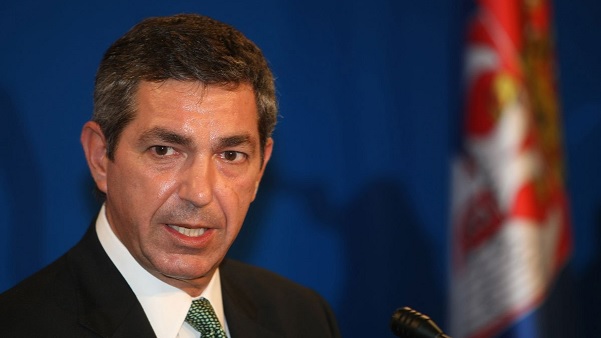
Addis Ababa―The European Union’s Special Representative for Human Rights, Stavros Lambrinidis, paid an official human rights visit to Ethiopia on 4-6 April 2017. The visit marked the launch of the sectoral dialogue on Human Rights and Governance, the first formal dialogue between the two sides under the June 2016 EU-Ethiopia Strategic Engagement.
Topics of the sectoral dialogue included rule of law (due process of law and detention conditions), economic and social rights in the context of “Developmental state” (youth empowerment and children rights), and human rights in the context of migration (human rights of Ethiopian migrants in Middle East and cooperation in fight against human trafficking). The two sides discussed openly progress and challenges and areas for potential improvements and future cooperation.
“The European Union is ready to deepen its strategic engagement with Ethiopia in all fields,” stated Mr. Lambrinidis. “Closer cooperation and concrete progress on human rights is a key for that.”
In addition to the dialogue, EUSR Stavros Lambrinidis discussed the human rights situation with Ethiopia’s Prime Minister Hailemariam Desalegn, the Minister of Federal Affairs Kassa Tekelebirhan, the Speaker of the House of People’s Representatives Abadula Gemeda, the chairman of the State of Emergency Inquiry Board, the Deputy Attorney General, the chairman of the Ethiopian Human Rights Commission, senior ruling party officials, and leaders of opposition political parties. He also met with independent human rights NGOs, human rights defenders, and women’s rights organizations. He visited the IOM Transit Center for returnees, where he interacted with administrators and children returning from irregular migration and discussed human rights challenges related to migration. Finally, he visited the Maekalawi Federal Police Criminal Investigation Center, where he discussed with top administrators the conditions of interrogation and detention of those arrested on Anti-terrorism Proclamation and other related charges, including during the ongoing State of Emergency, and the need for independent investigations and accountability for allegations of torture and mistreatment.
The various discussions mainly focused on the many human rights and governance challenges in the context of mass protests in 2015 and 2016 followed by the State of Emergency imposed by the government since October 2016. The EUSR took positive note of the Inquiry Board’s monitoring of places of detention during the State of Emergency (SoE) and encouraged the implementation of its recommendations to improve detention facilities and minimize abusive practices. He was also informed of the government’s plans for political reforms, for institutional strengthening and for support to economic opportunities for the youth. The EUSR welcomed progress made on several economic and social rights in recent decades, and restated the EU’s commitment to continue cooperating with and supporting Ethiopia and its people in this regard.
On civil and political rights, the EUSR encouraged concrete changes to laws and practices to ensure more outlets for citizens to express their views and concerns freely and peacefully, including through independent media, political parties and civil society, in order to promote the country’s sustainable security and stability and social resilience. Stavros Lambrinidis expressed EU concerns over the large number of persons being detained or prosecuted since the protests and continuing under the SoE and called for the respect of due process of law in all cases. He noted that the 2015 general elections had resulted in a House of Representatives without any voices of the political opposition, and encouraged a genuine and inclusive political process to find a constructive way forward and to ensure greater representation of different political parties and views ahead of the 2018 and 2020 elections. The release of opposition leaders and others, and the further easing of restrictions and prompt lifting of the State of Emergency, would send an important signal to that direction.
The EUSR also noted Ethiopia’s membership at the UN Human Rights Council and encouraged Ethiopia’s positive human rights leadership in the international field, including through closer engagement with the UN high commissioner for human rights and his office and United Nations special rapporteurs on human rights issues.
“The EU stands ready to share its own experiences of managing ‘unity in diversity’ with Ethiopia, and to support any governance reforms that could genuinely address the challenges facing the country and safeguard Ethiopia’s democracy and prosperity,” stated Mr. Stavros Lambrinidis at the conclusion of his visit.
